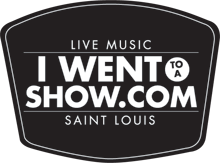[GUEST FEATURE] Rhiannon Giddens Says What Needs to be Said: An Interview
September 17, 2015
EDITOR’S NOTE: Our friend Kyle is a writer in St. Louis, MO and occasional guest contributor to IWTAS. We dig his unique style and his passion for profiling talented musicians. What follows is an interview with folk artist Rhiannon Giddens (former Carolina Chocolate Drops). Enjoy!

Rhiannon Giddens (press photo)
By Kyle Kapper
When folk music fans filed into New York’s Town Hall in the fall of 2013 for a concert inspired by the Coen brothers film Inside Llewyn Davis, their minds were likely on the evening’s marquee artists: Joan Baez, Jack White, Elvis Costello. Few expected Rihannon Giddens, then best-known for her work with the Carolina Chocolate Drops, to steal the show with a to-the-rafters take on “Waterboy,” a Jacques Wolfe traditional made famous by Odetta. Yet by the time the house lights came up, the hall was abuzz about the show stopper, and by the next morning, the New York Times was calling Giddens “the concert’s real head turner.”
The evening was a breakthrough for Giddens’ solo career. The following year, T-Bone Burnett, who had arranged the Town Hall show, invited her – along with Jim James, Taylor Goldsmith, Costello, and others – to arrange and perform songs Bob Dylan wrote in the 60s but never put music to in a project called Lost on the River: The New Basement Tapes. A solo album (Tomorrow is My Turn) followed and a world tour soon thereafter.
It’s easy to understand why success follows Ms. Giddens around. She has the singing power of Patsy Cline and the stage presence of Nina Simone, and her outspokenness against racial injustice is as magnetic as it is forthright. When I caught up by phone with Giddens, we started our conversation there.
You wrote “Cry No More” in response to the tragic church shooting in Charleston, South Carolina. The video ends with the words “Speak Up, Be Loud” emblazoned across the screen. Do you think protest music can be effective in the 21st Century?
Rhiannon Giddens: I sure hope so. I think it’s more difficult these days than in days gone by. In the 60s, it was the Folk Revival. There was a lot more awareness in the culture at large, whereas now folk music has really been relegated to offshoots. I think the most successful protest music is in other genres that are more popular right now, like R&B and hip-hop. Maybe we’re preaching to the choir, shouting in the wind. I don’t know, but it doesn’t mean we shouldn’t say what we need to say. There’s a long history of it in folk music, and it’s an honorable one.
Are you optimistic that the reforms being called for across the country, such as in the Ferguson Commission’s report released this morning, will have a lasting impact?
Giddens: What makes me optimistic is that we’re talking about it. This stuff has been going on. That’s nothing new. What’s new is we have the technology to disseminate it so people will know what’s happening. It doesn’t get lost as easily as it used to.
It used to happen and then it was gone, and only the people in that community knew about it. Now it can achieve national importance because of iPhone videos and recordings and that sort of thing. For me, that’s really positive. The question is, what do we do with all the information? How do we make the change? It boils down to knowing the history so we don’t keep repeating it. It’s that simple.
Read a book. Read a book about the history of the United States. Talk about where did this come from? Ask. Be curious. Don’t just say “that person is a racist bigot” and that’s the end of it. Well, why is that person a racist bigot? Where are they coming from? What’s the structure that’s creating that? Nothing exists in a vacuum, and until we stop thinking that this stuff is just happening because it’s happening or because black people are lazy or some crap like that, nothing’s gonna change. But I have hope because of the tools that we have now that we can do something. We just have to pick them up and do it.
Is that the overarching message in songs like “Cry No More?”
Giddens: [“Cry No More”] was a very specific message. One of the reasons I felt like I needed to do it is because I’m in a position of being very aware of musical history and just history in general in terms of racism in this country. This has been happening for a long time. It’s not an isolated incident. This is not just some guy who went off his nut and went into a church and shot up some people. This is connected to a long line of incidents and the history of racism in this country.
It’s a deep and troubling history that we have, and it’s pretty difficult. You know, I can’t say all of that stuff, so what I try to do is connect it emotionally. When somebody’s listening, if they get any kind of idea that this has been going on for a while and that it’s connected to other things, that’s all I can hope for. Maybe they’ll pick up a book or something. I don’t know. I don’t know what good it does, but that can’t stop me from putting it out there.
Many people in the United States seem genuinely surprised that racism persists today.
Giddens: Yeah, and that’s what disturbs me. We don’t have a sense of our history. It’s taught so badly in schools, and the true history of this country is not taught at all. You have to go find it for yourself. We have to get off of these reality shows and start reading history.
On the topic of protest music, I was surprised in The New Basement Tapes special that you said you were mostly unfamiliar with Dylan’s work. Have you gone back and explored his music more since that project?
Giddens: I tend to listen to a lot of the stuff that Dylan listened to, you know? A lot of people discover Dylan and then go back. I kind of skipped that step: I just went back. I listen to a lot of stuff from the 20s and 30s and whatnot. I kind of discover great songs by him by accident, which is great. I think he’s a fantastic songwriter. But I’m focused on other things right now. I’m listening to Dolly Parton and some other songwriters. Dylan doesn’t really need my help. [laughs] I mean, Dolly doesn’t either, but a lot less people know how good of a songwriter she is, for example, than know what Dylan can do. I’m always looking to shine a light where it doesn’t necessarily get shined very often. Dylan’s light has been shined many, many, many times, and I feel good about the work I did on The New Basement Tapes, and I’m always going to be grateful that I [was] able to do that project.
One singer your album shines a light on is Odetta. Was it your choice to perform “Waterboy” at Town Hall?
Giddens: Yes, it was my choice. I just felt like she needed to be represented. She was a huge part of the Folk Revival, and I felt like that was my role because I’m classically trained, and I’m on a path that’s similar to hers. I’m really glad to have gotten it out there. She didn’t write it, but she certainly imbued it with her spirit and her fire, and that was certainly the version that I was inspired by.
You wrote “Angel City” as a thank you to your collaborators in The New Basement Tapes, in which you refer several times to the sea. Could I ask what it symbolizes?
Giddens: I don’t want to say enlightenment, but where you see the light, basically. You know, we live in this dark area. We’re choked by our own insecurities and our own blindness and our own inability to see there’s this beautiful thing, like right there. There’s this gorgeous ocean waiting for us to take it all in, but we just need to get there. What it often takes is somebody to take you by the hand and say, “I’m going to go with you. I’m going to help you get here.” That’s what we do with our interactions with people, is help each other see that. It’s very difficult to do that by yourself. That song was all about confronting all that stuff within myself and then being so grateful, not only to the other musicians on the project but also to the film crew, the engineers – everybody who was there helped me in some way reach this next place where I realized a lot about myself as an artist and who I was and what I had to offer. Fairly important song for me.
You mentioned that you tend to listen to music from a century ago. Do you have any suggestions for others who’d like to follow your lead in going right to the source?
Giddens: I do! There’s no better time than now with all the reissues that are happening. Collectors who have collected all this music carefully now have the technology to clean it up and put it out there for not that much money. There’s a company called Old Hat Records who put out some beautiful reissues of stuff from the 20s and 30s. What I always suggest to people is to start with the compilations. Like I started with Violin, Sing the Blues for Me and Folks, He Sure Do Pull Some Bow!, which was like black and rural fiddle music from the 20s and 30s. There’s tons of compilations out there, and if you find a group like the Mississippi Sheiks or the Memphis Jug Band, you can go get their record. Start with the compilation, and find what speaks to you. I guarantee there’s going to be a reissue of their music.
Your music draws comparisons to legends usually thought of as incomparable, such as Odetta herself. How do you translate what many, myself included, perceive as a “larger than life” persona in 2015?
Giddens: I’m still figuring that out. I am a throwback in a lot of ways, and I think it remains to be seen how I will fit in to this music industry. There was a lot of ink written about me when Tomorrow is My Turn came out: a lot of people predicting big things. None of that means anything if it doesn’t connect to the folks out there who are buying music.
I know there’s a place for me in this musical culture, for sure. How big that is? I don’t know. All I can do is put on the best show that I can and keep saying what needs to be said. My next record will be telling. It’s going to be more originals, and I’m going to be saying a lot more with it. I’m one of those people who does what’s in front of me, and if I feel strongly about the music and I feel good about what I’m doing. The rest of it is just going to be as it will. Can’t really control it.
Rihannon Giddens performs at The Castle Theatre in Bloomington, IL on September 18.
